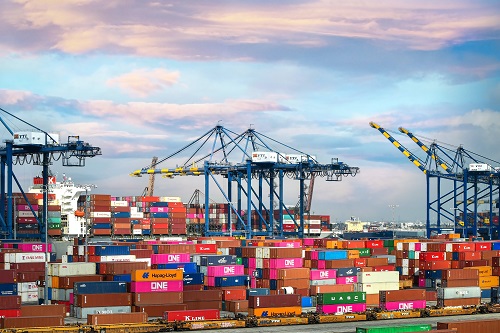Source: University of Waikato
New Zealand recently signed the Regional Comprehensive Economic Partnership (RCEP), an historic trade agreement between fifteen economies in the Asia Pacific region covering almost a third of the world’s population.
Formalised in November 2020, the decision to sign was supported with advanced economic modelling by a team of researchers, including University of Waikato Economics Professor Anna Strutt. Their analysis highlighted that a large proportion of the gains from this agreement are likely to come from reductions in non-tariff measures – countries’ policies or regulations (other than tariffs) that impact on imports or exports.
“Our focus in international trade policy has traditionally been on tariffs, which are far easier to quantify,” says Professor Strutt. “But with trade agreements now tending to focus on broader areas, including non-tariff measures, we realised we were missing quite important parts of the story if we didn’t have the data and tools to model these appropriately.”
Modelling the impact of non-tariff trade measures
Backed by international agencies including the World Bank, University of Waikato researchers have in recent years been undertaking extensive work to improve the data and modelling for the impact of non-tariff measures on international trade.
From 2014-2017, Professor Strutt led a team collating data on New Zealand’s non-tariff measures. Their work forms part of the international database that is now widely used by economists and policy makers across the world.
“When products are imported, countries will apply rules on all kinds of things such as labelling required or pesticide residues allowed, with differing and sometimes confusing regulations. These are the types of things that impact trade that we often don’t really think about,” she says.
“Creating the international database of non-tariff measures and modelling the effects of them can bring more transparency to the table. It can contribute to international standards being agreed which harmonise non-tariff measures across countries, still achieving the policy objectives while reducing costs and barriers.”
Supporting the United Nations Sustainable Development Goals
The data Professor Strutt and her team collated also fed into a recent United Nations Economic and Social Commission for Asia and Pacific (UNESCAP) report. Co-authored by University of Waikato alumnus Dr Alexey Kravchenko, the report showed that around two thirds of New Zealand’s non-tariff measures directly address the United Nations Sustainable Development Goals (SDGs), a very high proportion compared to other countries.
The 17 goals are designed to highlight the global challenges we face, including those related to poverty, inequality, climate change, environmental degradation, peace and justice.
Many of New Zealand’s non-tariff measures align with the SDG of protecting food security by addressing health and safety issues with food items and preventing pest infestations. Other measures include tobacco product packaging and taxes (to reduce smoking), and car safety requirements and exhaust limits (to combat car fatalities and emissions).
“Non-tariff measures can have all sorts of impacts, sometimes direct and sometimes indirect,” Professor Strutt says. “It’s interesting that the data we worked on, that fed into the international database used in the UNESCAP report, has identified this alignment of New Zealand’s regulations with the SDGs.”
Non-tariff measures increasing globally
Professor Strutt says while many tariffs have significantly reduced over time as trade has liberalised internationally, there appears to be an increase in the number of non-tariff measures impacting markets.
“The increases could partly be because we are getting more transparency on these measures, particularly in developing countries, and we need to remember that many of them are driven by legitimate policy objectives.”
Additionally, she says international evidence is currently suggesting a significant increase in some non-tariff measures specifically in response to the Covid-19 pandemic. “Some countries are restricting exports and liberalising imports of medical supplies and food products.”
Non-tariff measures can be a significant barrier to trade and the costs associated with them are estimated to be substantially higher than tariffs.
“While regulations are often necessary, improved transparency and harmonisation of standards can help to reduce the costs of doing business internationally,” Professor Strutt says.



